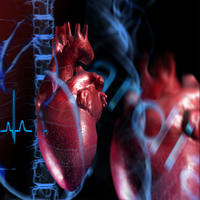Dying of a Broken Heart

Some colleagues in London have discovered how intense stress may cause severe irregularities (arrhythmias) of the heart that could be fatal.
It has been known for some time that emotional trauma and psychological stress can precipitate cardiac arrhythmia and sudden death through over-activity of the sympathetic nervous system, the system usually associated with “Fight or flight.” It has also been known that people with preexisting heart disease are particularly at risk. This is one stereotype that is true: if someone with heart disease gets a bad shock, they may indeed die. It has been known for centuries that suffering a sudden unexpected bereavement can be a fatal stressor.
It is extremely important to understand how stress can affect the heart, and researchers at the Wellcome Trust Centre for Neuroimaging at University College London and the Brighton and Sussex Medical School have made an important breakthrough that has just been published in the Proceedings of the National Academy of Sciences. Measuring the electrical activity of the brain and heart at the same time, they discovered at the regions of the brain responsible for learning, memory and emotion can destabilise the cardiac muscle of someone who already has heart disease. These areas of the brain can participate in a “vicious cycle” with the heart.
The patients performed the task of counting backwards in sevens, which is for most people mildly stressful.
The researchers discovered that activity in “higher level” regions of the brain such as the cerebral cortex, not only reflected the responses of the heart to stress, but also became involved in a “feedback loop”, often worsening the situation by making the heart muscle less stable.
The regions of the brain responsible for regulating heart function can be unbalanced by stress, and it can be fatal.
It is further evidence that there is a constant “conversation” between the heart and the brain.
It is also the best evidence to date that comprehensive care of people with heart disease must include stress management.
And why wait until it’s too late?
Now is the time to start building your resilience to stress!






